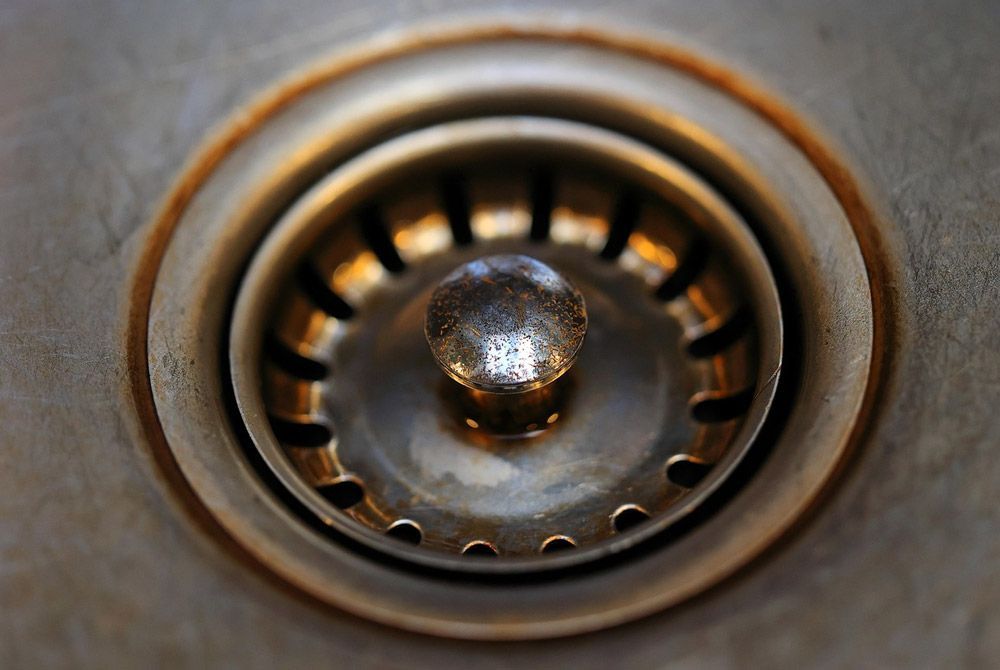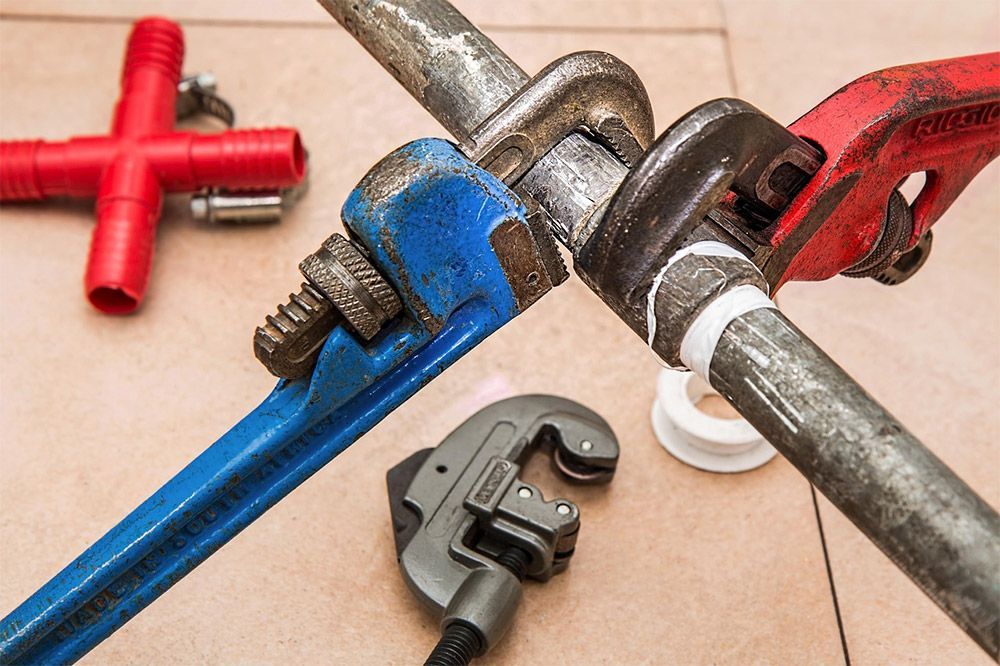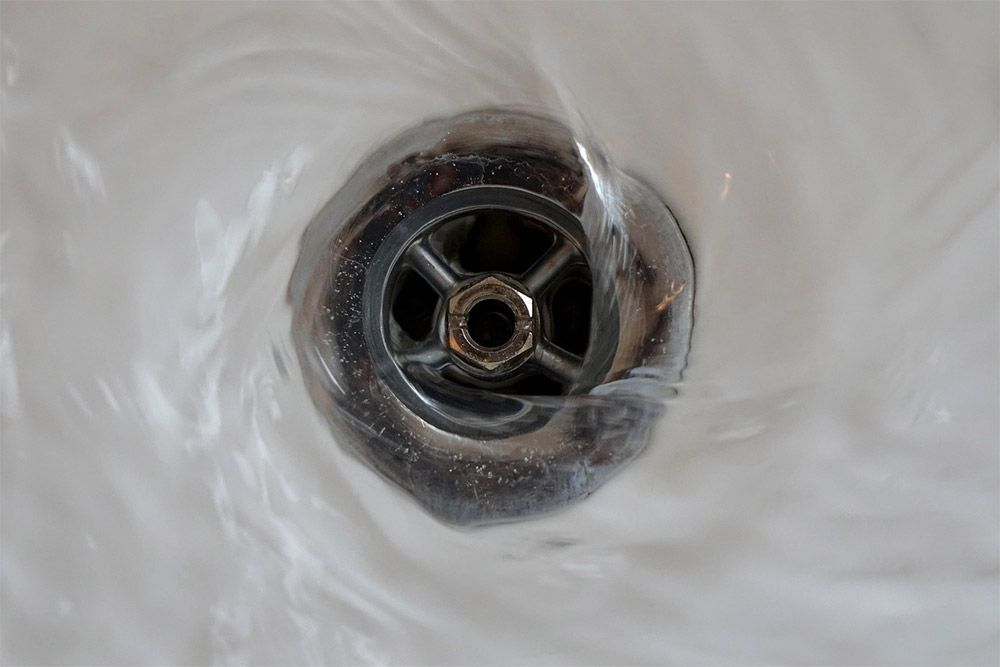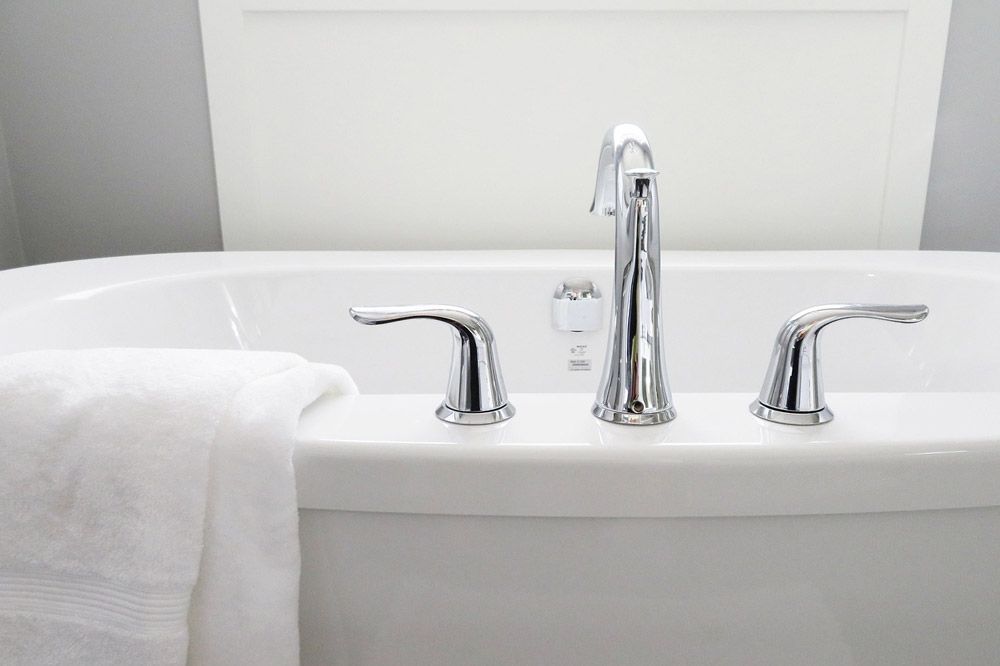What You Should Do If Sewage Backs up in The Bathtub or Shower?
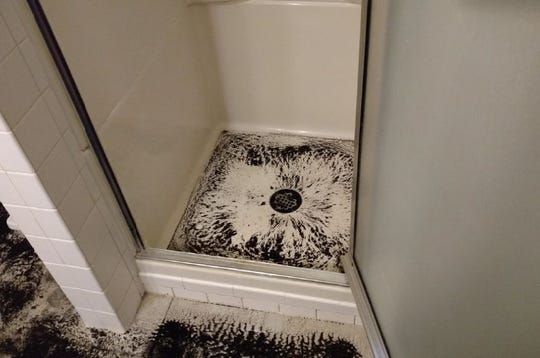
If sewage were to back up in your bathtub or shower, it is essential to act quickly to prevent any further damage or contamination to your home. The first step should be to turn off the water supply to the affected area if possible. This will prevent any additional sewage from entering the house. It's important to avoid using the shower or bathtub until the problem has been resolved. To attempt to unclog the drain yourself, use a plunger or an auger. However, if the blockage persists, it's best to contact a professional plumber who can identify and repair the issue safely. Delaying dealing with sewage backup can lead to frustrating problems and can severely damage your plumbing system. Remember, it’s always better to be safe than sorry. Contact Afford A Rooter Plumbing at 720-296-7972 today.
Sewage backup in shower is a serious issue and can cause a lot of inconvenience and discomfort to homeowners. The backup can be caused due to various factors such as clogging in the pipes, tree roots growing into the pipes, or blockage in the main sewage line. This issue not only leads to foul smells and unsanitary conditions, but it can also cause damage to the bathroom fixtures and flooring. It is important to address this issue immediately by calling in a professional plumber who can identify the source of the problem and provide an effective solution to prevent further damage. Don't let sewage backup in the shower ruin your day, take action to fix the problem as soon as it arises. contact Afford A Rooter Plumbing at 720-296-7972 today.
Encountering the problem of sewage backing up in your shower can be both frustrating and alarming. It is undoubtedly an issue that needs immediate attention from a professional plumber to prevent it from escalating into a more significant problem. The cause of the backup could be a clog in the drainpipe or a more severe issue like a damaged sewer line. A professional plumber has the expertise and tools to identify the underlying problem, fix it, and ensure your shower operates correctly again. As you seek a solution to the sewage backup problem, it is crucial to prioritize your safety and that of your family by avoiding using the shower until the problem is resolved. contact Afford A Rooter Plumbing at 720-296-7972 today.
What Do You Do When Sewage Backs up in Bathtub?
Sewage backup in the bathtub is a frustrating, unpleasant and potentially hazardous problem that homeowners should take seriously. When it happens, it can be difficult to know what to do and where to start. However, the first and most important step is to avoid using the bathtub or any other plumbing appliance until the problem is fixed. Attempting to clean the mess or using drain-cleaning chemicals could only make the situation worse, leading to more severe damage or contamination of the water and surfaces. Instead, homeowners should call a professional plumber to diagnose and repair the root cause of the issue, whether it is a blocked sewer line, a damaged pipe, or any other issue that requires expertise and specialized tools to resolve. By acting promptly and seeking professional help, homeowners can avoid the health risks, property damage, and costly repairs that can result from sewage backups. contact Afford A Rooter Plumbing at 720-296-7972 today.
What Does it mean when Sewage Backs up in The Bathtub?
When sewage backs up in the bathtub, it's an indication that there may be a problem with the main sewer line or with the plumbing in the house. This is not just an inconvenience, but it poses potential health risks as well. The backup can result in unpleasant odors, unsanitary conditions, and damage to pipes and fixtures. The cause of the backup could be due to a blockage, such as tree roots or debris, or it could be due to a break in the pipes. It is essential to address the issue promptly and call in a professional plumber to inspect and repair the problem to prevent further damage and ensure a safe and healthy living environment. contact Afford A Rooter Plumbing at 720-296-7972 today.
What to do When Sewage Backs up in Shower?
Experiencing sewage backup in your shower can be an unnerving and unpleasant situation that requires prompt and professional assistance. Knowing what to do when sewage backs up in the shower involves taking immediate and cautious action to minimize the damage and prevent the spread of sewage. It is critical to avoid using the shower or any plumbing fixtures before a plumber arrives to assess the situation, as this can further exacerbate the problem and lead to additional expenses. In such emergencies, it is best to consult with a reputable plumber with expertise in handling sewage backups to identify and remediate the issue effectively. Remember to prioritize your health and safety by avoiding contact with any sewage or polluted water, and call for assistance as soon as possible. contact Afford A Rooter Plumbing at 720-296-7972 today.
What Causes Sewage Backup in Shower
Sewage backup in shower is a common plumbing problem that occurs when wastewater from residential or commercial settings is prevented from flowing out of drainage systems. This can lead to major issues such as damage to property, foul odors, health hazards, and costly repair bills. Various factors can contribute to sewage backup in shower such as clogged pipes, sewer line damage, and tree root invasion among others. Accurate diagnosis of the root cause of the problem is crucial for effective solutions. In order to avoid sewage backup in shower, regular maintenance of drainage and plumbing systems is important to remove any blockages or mask advanced problems before they grow into catastrophic issues. It is recommended to seek professional assistance from certified plumbers to fix sewage backup in the shower as they have the experience and tools necessary for the job. contact Afford A Rooter Plumbing at 720-296-7972 today.
How To Get Rid of Sewage Smell in Shower Drain
Dealing with unpleasant smells is never a pleasant experience, especially when sewage odors are coming from your shower drain. If you're struggling with this issue, you're not alone. Many homeowners face the problem of a smelly shower drain, but fortunately, there are ways to get rid of it. Understanding the cause of the odor is a critical step in identifying the solution. When wastewater isn't flowing correctly, it can accumulate in the P-trap, causing an unpleasant smell. To resolve this issue, you'll need to flush the pipes using a mixture of baking soda and vinegar or cleaning with an enzyme-based cleaner. With a little patience and the right tools, you can say goodbye to the smell, and hello to a fresh and clean shower. contact Afford A Rooter Plumbing at 720-296-7972 today.
What Causes Sewage Backup in Bathtub
Sewage backup in your bathtub can be a frustrating and unexpected problem. Many homeowners often Sewage backup in the bathtub can be a messy and unpleasant experience that can cause significant damage to your property. It is essential to understand the underlying causes of this problem to prevent it from happening again. There are several reasons why sewage backup can occur in your bathtub, including clogs, damaged sewer lines, tree root intrusion, and heavy rainfall. In most cases, the main cause stems from the accumulation of debris in the plumbing system, eventually leading to a blockage. It is essential to address the issue immediately by contacting a professional plumber as soon as you notice the early signs of sewage backup. By doing so, you can prevent further damage to your property and ensure the safety and comfort of your family. contact Afford A Rooter Plumbing at 720-296-7972 today.
A bathtub is a source of relaxation and rejuvenation for many people. However, what happens when the water filling it is not clean and fresh, but rather sewage? Unfortunately, this has been a reality for some homeowners who have experienced the distressing phenomenon of a bathtub filling with sewage. This issue can occur due to a blockage or backup in the plumbing system, leading to raw sewage flowing out of sinks, toilets, and ultimately, bathtubs. Not only is this unpleasant and unsanitary, but it can also be a health hazard, exposing occupants to harmful bacteria, viruses, and other contaminants. Prompt action is required to address this issue and prevent it from happening again in the future. contact Afford A Rooter Plumbing at 720-296-7972 today.
Bathtub Backing up with Sewage
A backed-up bathtub with sewage is not only unpleasant, but it can be a health hazard. This issue can be caused by a clog in the drain or issues with the sewer line. Either scenario requires urgent attention to prevent further damage and potential exposure to harmful substances. It is important to act quickly and call a professional plumber to diagnose and fix the issue. Attempting to fix it yourself could result in further damage or health risks. A skilled plumber will have the necessary tools and expertise to get your bathtub draining properly again and ensure the safety of your home and family. contact Afford A Rooter Plumbing at 720-296-7972 today.
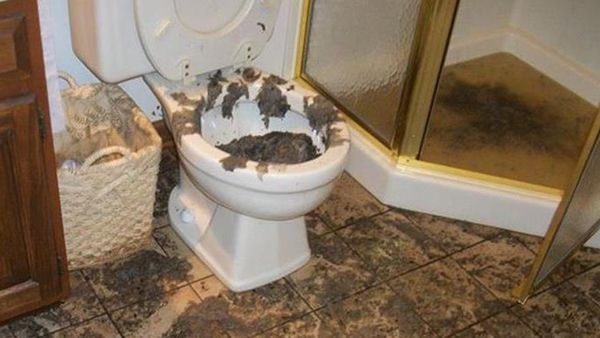
When sewage starts coming up in your bathtub, it's a situation that requires immediate attention. Not only is it unhygienic and unpleasant, but it can also be a sign of a much larger problem. Sewage backups often happen due to blockages in your home's plumbing system or issues with the sewer line outside. While it can be tempting to try to fix the issue yourself, it's best to enlist the help of a professional plumber. They'll be able to diagnose the problem accurately, provide solutions, and prevent further damage to your plumbing system. Remember, ignoring sewage backups can lead to worse problems down the road, so address them promptly and properly. contact Afford A Rooter Plumbing at 720-296-7972 today.
Sewage Water Coming up in Bathtub
A common problem that many households experience is sewage water coming up in the bathtub. This can be a sign of a larger issue with the plumbing system and should not be ignored. It is important to call a professional plumber to inspect the issue and ensure that the problem is resolved quickly and effectively. Sewage water can carry harmful bacteria and germs that can pose a risk to the health of those in the household, making it all the more important to act swiftly when experiencing this problem. With the help of a skilled plumber, you can address the issue and restore the safety and comfort of your home's plumbing system. contact Afford A Rooter Plumbing at 720-296-7972 today.
Why is Sewage Backing up in Bathtub
Sewage backup in a bathtub can be a very unpleasant and inconvenient issue to have in a household. There are several reasons why a sewage backup may occur in the bathtub, ranging from clogged pipes to structural issues. It's important to address the issue as soon as possible in order to prevent further damage and potential health hazards. It's recommended to contact a professional plumber to properly diagnose the problem and determine the best course of action for resolving it. Taking preventative measures such as properly disposing of toiletry products and avoiding pouring grease down the drain can also help to prevent future occurrences. contact Afford A Rooter Plumbing at 720-296-7972 today.
Why is Sewage Coming out of Bathtub?
If you've ever noticed sewage coming out of your bathtub drain, chances are you're feeling worried and anxious about the situation. There are several possible reasons for sewage backflow, ranging from a clog in your plumbing system to a more serious issue like a broken sewer line. Regardless of the cause, it's important to take immediate action to address the problem to prevent potential health hazards and damage to your property. A professional plumber can help diagnose the issue and provide effective solutions to resolve the problem and prevent it from happening in the future. It's crucial to act fast and seek professional help to ensure your home is safe and sanitary. contact Afford A Rooter Plumbing at 720-296-7972 today.
Is Sewage in Bathtub Dangerous
Sewage in a bathtub can potentially be hazardous to one's health, as it contains a variety of bacteria, viruses, and other contaminants. If left untreated, exposure to such waste can cause a range of illnesses, including gastrointestinal infections, respiratory issues, and skin irritation. It is important to address any sewage-related issues in a timely manner, and to seek professional assistance when necessary to ensure that the affected area is properly cleaned and disinfected. Additionally, taking preventative measures such as routine maintenance and proper disposal of waste can help reduce the risk of sewage backups and related health concerns. Ultimately, it is crucial to prioritize safety and take any necessary steps to mitigate potential health risks associated with sewage in the bathtub and other areas of the home. contact Afford A Rooter Plumbing at 720-296-7972 today.
Facing a foul odor in one's bathtub can be a frustrating and unpleasant experience. Not only does it disrupt the comfort of bathing, but it also raises concerns about the source and potential health hazards. If you are experiencing a similar issue in your home, where your bathroom or bathtub smells like sewage, it's essential to take it seriously and investigate the root cause. Some common causes of sewage smells in a bathtub can range from clogged drains, dry plumbing traps, to damaged sewage lines. Seeking professional help to identify and fix the issue can help ensure the safety and convenience of your home's plumbing system. Don't ignore the unpleasant odor, address the root cause with professional plumbing services. contact Afford A Rooter Plumbing at 720-296-7972 today.
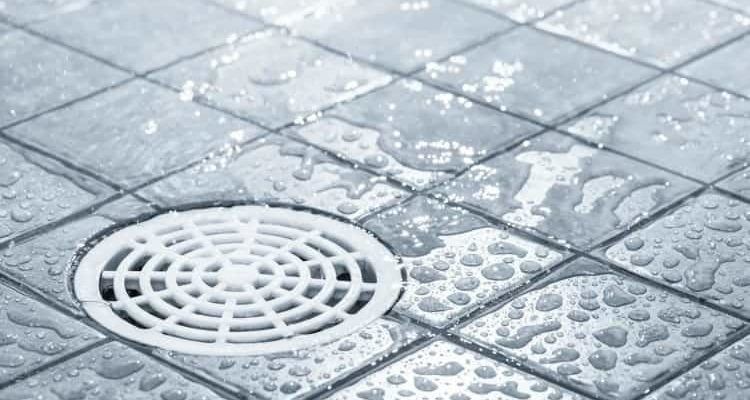
Sewage Smell Coming from Bathtub
The occurrence of a sewage smell emanating from the bathtub can be both unpleasant and concerning. This unpleasant odor can be an indication of potential plumbing issues that may require the attention of a professional plumber. There are several causes of the sewage smell coming from the bathtub, including a clogged drain, damaged or worn-out pipes, or even a sewage backup. If not addressed promptly, this issue can result in further damage and costly repairs. It is essential to take prompt action to diagnose and resolve the underlying cause of this problem to ensure the safety and comfort of your home. Contacting a professional Denver plumber is the best course of action to effectively address the cause of the sewage smell and prevent any further damage to your home. contact Afford A Rooter Plumbing at 720-296-7972 today.
Sewage Smell Coming from Bathtub Drain
If you're experiencing a sewage smell coming from your bathtub drain, it's important to address the issue as soon as possible. This can be an indicator of a larger plumbing problem that requires attention from a professional. The cause of the smell can stem from a variety of factors such as a clogged drain, worn out pipes, or a malfunctioning sewer line. Ignoring this problem can result in potential health hazards for you and your family. Therefore, it's recommended that you seek out a licensed plumber to identify and fix the underlying issue. Don't let the unpleasant odor linger any longer than necessary and take action to ensure the safety and functionality of your plumbing system. contact Afford A Rooter Plumbing at 720-296-7972 today.
How to Clean Sewage Backup in Bathtub
Sewage backup in your bathtub can be a dirty, messy and unpleasant experience. While calling a professional plumber is always recommended, there are steps you can take to clean up the backup before the plumber arrives. Start by putting on gloves and protective clothing. Then, use a scoop or a plastic cup to remove as much of the sewage as possible. Dispose of it in a plastic bag and seal it tightly. After that, use a drain cleaner to break up any remaining debris. Use a scrub brush to clean the bathtub thoroughly and rinse it with hot water. If the backup persists, it's important to call a professional plumber who can identify the root cause of the issue and provide a long-term solution. Remember to always prioritize safety and dispose of the sewage properly. contact Afford A Rooter Plumbing at 720-296-7972 today.
Contact Afford-A-Rooter Plumbing in Denver Today
Do You have sewage coming up in your bathtub or shower? Nobody likes plumbing problems or smelly bathtub or shower drains in Denver, at Afford a Rooter Plumbing and we’re here to help you when drain backups occur. Afford-a-Rooter Plumbing is a master plumbing company serving residential and commercial properties in the Denver area since 2006. We received the Angie’s List Super Service award from 2012-2017 and have an A-plus rating with the Better Business Bureau.
The Afford-a-Rooter Plumbing Repair Guarantee
24/7 Immediate Response
Certified Emergency Plumbing Service Professionals
Affordable, High-Quality Services
Recent Blog Post
